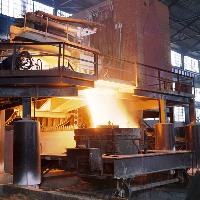(STRASBOURG) – New EU rules will require trade partners outside the EU to meet international social and environmental standards, following a vote by Euro-MPs Wednesday to fight dumped and subsidised imports.
The aim of the new rules – the first time these have been applicable worldwide – is to step up protection for EU jobs and businesses against unfairly cheap imports from third countries that interfere heavily in the economy.
European jobs and firms have had great difficulty in competing with cut-price imports from third countries that have excess production capacity and subsidised economies, mainly in the steel, aluminium, bicycles, cement, chemicals, ceramics, glass, paper and solar panels industries.
The new rules would enable the EU to respond to such unfair trade practices by targeting imports where prices are not market-based, due to state interference. MEPs are also negotiating further plans to update the EU’s “trade defence instruments” with a view to raising tariffs against dumped or subsidised imports from countries that do not interfere extensively in the economy.
What’s new:
- the impact of social and environmental dumping will be taken into account when deciding on anti-dumping measures,
- the EU Commission is to monitor circumstances in exporting countries. EU firms may rely on these reports when lodging complaints,
- there will be no additional burden of proof on EU companies in anti-dumping cases, on top of the current procedure,
- small and medium-sized enterprises will get help to deal with procedures, and
- all parties involved, particularly trade unions, may give input to decisions on trade defence measures.
The deal was welcomed by the Parliament’s International Trade Committee Chair Bernd Lange MEP: “I’m proud of the result we achieved. We have made our trade defence stronger and ensured that for the first time worldwide trade defence legislation takes account of respect for labour and environmental standards. We’ve given our industries a future-proof system to effectively protect themselves from unfair practices.”
Parliament’s rapporteur Salvatore Cicu MEP added: “Today we are not only discussing whether China is a market economy or a non-market economy, but whether our European system can and must create equal rules for everyone and whether these rules can offer the same opportunities to everybody. The answer is yes, because we need equal and fair competition.”
What Parliament endorsed today was an informal agreement on new rules struck by MEPs and Council negotiators on 3 October.
The new rules will enter into force after the Council formally approved them and they are published in the Official Journal of the EU.
Further information, European Parliament
Adopted text will be available here (click on 15 November)
EP Briefing: Protection from dumped and subsidised imports (10 November, 2017)



